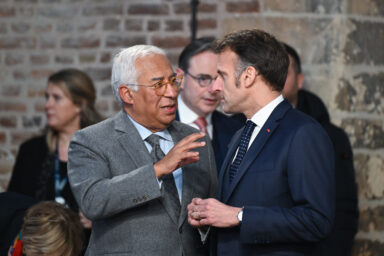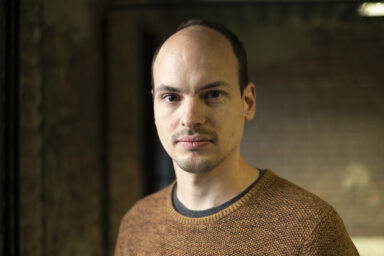European Commission President Ursula von der Leyen has called for decisive action to shore up Europe’s economic resilience. Addressing a gathering of German business leaders, she overwhelmingly prioritised competitiveness over once-dominant green ambitions of her Brussels team.
In recent months, Ursula von der Leyen has repeatedly warned that geopolitical turmoil and trade tensions demand urgent upgrades to the bloc’s industrial strategy. On 18 September 18th, the European Commission president laid out her case to German industry representatives in Berlin. “We can only protect peace and freedom if we also ramp up our economic strength. If we become independent—in terms of critical raw materials, defence and energy. If we speed up—across the board,” she urged.
Her nine-month-old Commission has prioritised competitiveness, she said, citing January’s Clean Industrial Deal, March’s €410bn defence package and a push to harmonise capital markets. “The Council and European Parliament now have to discuss these programmes and conclude them without delay,” she stressed, noting legislative bottlenecks. “The challenges are enormous.”
Ms von der Leyen acknowledged widespread frustration with EU bureaucracy. “I realise how doing business can often be held back by the mass of rules, reporting obligations and other requirements. Especially for small businesses.” Six simplification packages—from sustainability reporting to defence procurement—aim to save firms over €8bn annually.
You might be interested
Green light needed
Progress, however, hinges on lawmakers: “None of the omnibuses has yet reached its destination. We urgently need the green light.” Future laws will face mandatory “competitiveness checks”, she pledged.
The more flexibly energy can flow within Europe, the cheaper it will become. – Ursula von der Leyen, European Commission President
High power costs remain a millstone for manufacturers. “The key to energy affordability and energy security is energy produced here, in Europe,” Ms von der Leyen said, pointing to renewables and nuclear. (This comes less than two months after the EC president promised US leader Donald Trump to spend $750bn on US oil and gas by the end of his term.)
Low-carbon sources now provide 72 per cent of EU electricity, Ms von der Leyen claimed (the figure is made possible thanks to the inclusion of nuclear power plants), while in Germany, it is 63 per cent. This represents saving €60bn in fossil-fuel imports since 2022, Ms von der Leyen claimed (even as the figure for Germany is often disputed as exaggerated).
Balkanisation of trade
Either way, distribution remains patchy. Recent reforms let cohesion funds finance grid upgrades, with faster permits for cross-border links. “The more flexibly energy can flow within Europe, the cheaper it will become,” she said hopefully.
Barriers within the EU’s single market cost as much as “a 45 per cent customs duty on goods”, Ms von der Leyen said, citing IMF data. Her team is streamlining professional qualifications, digitalising paperwork and harmonising product labels to end “27 times” relabelling. “The same rules, the same standards in all 27 member states—that is the essence of a common single market.” She warned against “national gold standards” that Balkanise trade.
We aim to reduce the administrative burden for all enterprises by at least 25 per cent. For SMEs by 35 per cent. — Ursula von der Leyen
With 80 per cent of EU trade outside America, Ms von der Leyen played down US tariff rows: “I do not believe in customs duties. These duties are primarily taxes for American consumers.”
Lifeline for SMEs
Instead, she touted recent deals with Mercosur, Mexico and Switzerland, plus advanced talks with Indonesia and India. Raw-material pacts—like Canadian nickel for 800,000 EV batteries annually—aim to “position ourselves better and thus become more resilient”.
Small firms form the backbone of Europe’s economy, Ms von der Leyen noted, with 23m SMEs employing over 100m people. A stricter “SME check” will vet new laws, while a “Small Mid-Caps” category eases compliance for growing firms. “We aim to reduce the administrative burden for all enterprises by at least 25 per cent. For SMEs by 35 per cent.”
Closing with a rallying cry, Ms von der Leyen urged unity: “We will only be successful if we drive forward innovation and investment with verve. If we demonstrate confidence and single-mindedness.” But given the multiple headwinds, the final sentence of her speech—“long live Europe!“—came across more as a distressed plea rather than a statement of self-confidence.










